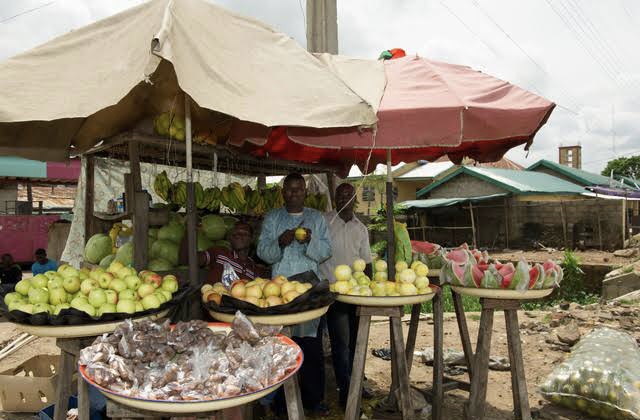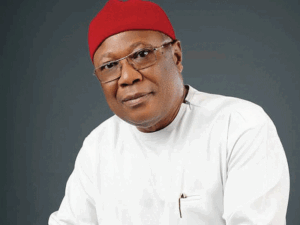Residents of Enugu metropolis are grappling with a steep surge in fruit prices, with costs soaring by over 60% in recent months, exacerbating food affordability challenges. A market survey conducted revealed alarming price hikes for staples like bananas, watermelons, grapes, and pineapples, pushing these essentials beyond the reach of many households.
A bunch of bananas previously sold for ₦1,500 between February and April now costs ₦3,500, while full banana bunches, once priced at ₦12,000–₦20,000, now range from ₦30,000 to ₦45,000. Watermelons sell for ₦3,500–₦6,000 per head, grapes for ₦6,000 per pack, and pineapples for ₦2,500–₦5,000. Even mangoes have become a luxury, with a small basket of four now priced at ₦1,000.
Traders and consumers attribute the crisis to multiple factors, including rampant exportation, insecurity in farming regions, climate change, and soaring transportation costs. Banana seller Ugonna Uche at Aria New Market lamented that exports drain local supplies, making fruits unaffordable for average Nigerians. “Securing farmlands and curbing exports are the only solutions,” he stressed.
At Ogbete Main Market, watermelon dealer Theresa Ozzie reported dwindling customers due to skyrocketing prices, urging government action to tackle food insecurity. Musa Ahmed, a trader at Garriki Market, cited insurgency in northern Nigeria, high logistics expenses, and multiple levies as key drivers. Clement Ango, another vendor, blamed erratic weather patterns for disrupting seasonal yields of bananas, mangoes, and grapes.
The price surge has hit consumers hard. Vincent Chukwu, a civil servant, admitted he now struggles to afford bananas, linking the crisis to broader economic strains fueled by petrol subsidy removal. “Without government intervention, poor diets could lead to disease outbreaks,” he warned, echoing concerns over shrinking access to nutritious foods.




